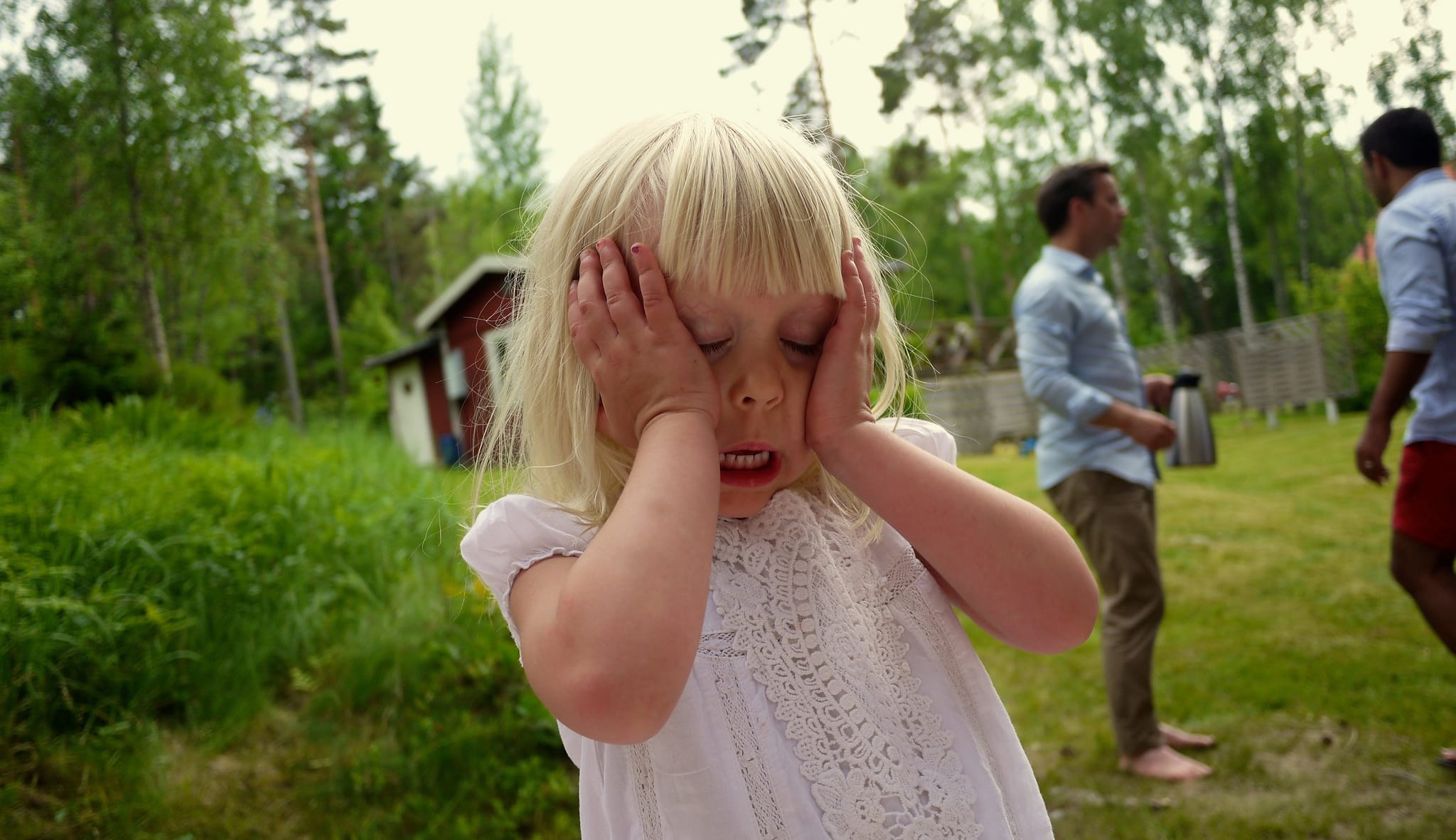
Frustration Is a Catalyst!
Perhaps you recall experiencing frustration when you tried to explain something important to someone who just doesn’t understand, or when you are interrupted during your work. Many four-year olds experience intense frustration when they are unable to make sense of an explanation to one of their many “why” questions. Frustration is a key emotion rooted in disappointment (Latin: Frustrā or “in vain”) and can be defined as irritable distress after a wish collided with an unyielding reality. People experience frustration when they encounter unresolved problems – both in terms of external barriers to goal attainment and internal obstacles blocking need satisfaction – which must be removed to fulfil personal goals, desires, drives, or needs (Jeronimus & Laceulle, 2017). It may be slightly confusing that frustration is both used to indicate grappling with the source of frustration and to indicate the emotional reaction itself, but in this blog post I focus on the emotional experience, and the broad range of possible consequences.
Most people experience frustration sometimes, because our needs cannot always be adequately satisfied in all situations. This is why the ability to effectively deal with frustration is a very important skill to develop, especially in people who are prone to respond with frustration to many cues (Jeronimus & Laceulle, 2017). Frustration is an integral component of our everyday conduct because it influences our decisions and the way we navigate our worlds via bodily changes (arousal/distress) that prompt us to action. When our perceived reality is worse than expected, frustration becomes manifest as negative affect to signal that interests and interactions must be adjusted. Similarly, emotional tension or “arousal” can instigate defensive or aggressive behavioral responses, such as striving to reduce or eliminate the blocking agent or circumstances (Jeronimus, Riese, Oldehinkel & Ormel, 2017).
“Frustration-like responses can even be observed in honeybees when experimenters shift access from a very-sweet concentration of sugar to one that is much less concentrated […]”
Frustration-like responses can even be observed in honeybees when experimenters shift access from a very-sweet concentration of sugar to one that is much less concentrated, thus presumably less desirable (Wiegmann, Wiegman & Waldron, 2003). Human infants show frustration when they discover that an attractive toy is placed behind plexiglas. Everyday problems that evoke frustration include traffic jams (physical blockages), difficult tasks (e.g., statistics, a computer game), or a checkout line (the perception of wasting time). Frustration can also be experienced in response to pain or anticipated punishment (threat) and therefore often accompanies anxiety), risk of losing valuable resources, novelty, or difficult social situations (Jeronimus & Laceulle, 2017). Examples of intrapsychic triggers of frustration include a confrontation with (perceived) individual deficiencies in knowledge, skill, physical abilities, social abilities, emotional awareness, and fear of social situations.
Frustration as a catalyst
Frustration is manifest in emotional tension or arousal. This energizing effect of frustration can instigate a wide range of outcomes, depending on the individual and the context (Jeronimus, Riese, Oldehinkel & Ormel, 2017). Frustration may therefore be understood as a catalyst. When frustration is triggered by an emotional loaded situation that involves a barrier or obstruction our heightened arousal (“distress”) may motivate one of two interpersonal negotiating tactics (approach or avoidance), depending on the given context. If you perceive the emotional situation as controllable and your goal as attainable, you are most likely to experience anger, to overcome obstacles and persist in goal approach (e.g., approach by inflicting costs) (Jeronimus, Riese, Oldehinkel & Ormel, 2017). However, when you perceive the emotional situation as uncontrollable, you are more likely to withdraw (avoidance), and to experience anxiety or fear. Finally, when the goal is clearly unattainable (e.g., someone died), frustration is most likely to lead to sadness, to downregulate your expected benefits. The configuration of this frustration response in humans is comparable to that in other mammals and birds (Jeronimus & Laceulle, 2017; Panksepp & Biven, 2012).
Frustration is therefore not necessarily bad, as it helps to identify problems, and propelled by discomfort, can act as a motivator to change towards different ways or truer answers.
One fascinating aspect of frustration is that it is a kind of tool that can help us to identify our needs or goals (which are blocked), of which we might not even have been aware. Frustration is therefore not necessarily bad, as it helps to identify problems, and propelled by discomfort, can act as a motivator to change towards different ways or truer answers. When people are frustrated they make greater efforts and strive in other directions. For example, Thomas Edison unsuccessfully tested over a thousand materials in a frustrated fit before he created the light bulb, which he described as an invention with 1000 steps. Also the internet and Facebook emerged out of frustration, and much beautiful music too (e.g., Help!, the Beatles). The idea of being unable to overcome a challenge is one of the major causes of frustration, as many students can verify, but such experiences may be put to good use and can have positive downstream consequences (“just because you don’t like it, does not mean it is not working for you”, see Tim Harford at TedX).
Psychopathology
Because frustrated individuals may act in an unfriendly or even malicious manner, dispositional frustration can have pervasive consequences for social relationships, social interactions, and occupational and job performances (Jeronimus & Laceulle, 2017). I study frustration because people who are prone to feel frustration are vulnerable for the later development of psychopathology (Jeronimus, Riese, Oldehinkel & Ormel, 2017), which indicates that frustration is close to the origin of the causal pathways towards psychopathology (Jeronimus, Kotov, Riese & Ormel, 2016). To me it is interesting to study the underlying mechanisms, and to focus on positive outlets for frustrated arousal.
Note: Image by joopey, licenced by CC BY 2.0.
References
Jeronimus, B.F., & Laceulle, O.M. (2017). Frustration. In Encyclopedia of Personality and Individual Differences. New York: Springer.
Jeronimus, B. F., Kotov, R., Riese, H., & Ormel, J. (2016). Neuroticism’s prospective association with mental disorders halves after adjustment for baseline symptoms and psychiatric history, but the adjusted association hardly decays with time: a meta-analysis on 59 longitudinal/prospective studies with 443 313 participants. Psychological Medicine, 46(14), 2883–2906. https://doi.org/10.1017/S0033291716001653
Jeronimus, B.F., Riese, H., Oldehinkel, A. J., & Ormel, J. (2017). Why Does Frustration Predict Psychopathology? Multiple Prospective Pathways Over Adolescence: A TRAILS Study. European Journal of Personality, 31(1), 85–103. https://doi.org/10.1002/per.2086
Panksepp, J., & Biven, L. (2012). The Archaeology of Mind: Neuroevolutionary Origins of Human Emotions. New York: Norton & Company.
Wiegmann, D. D., Wiegmann, D. A., & Waldron, F. A. (2003). Effects of a reward downshift on the consummatory behavior and flower choices of bumblebee foragers. Physiology & Behavior, 79(4–5), 561–566. https://doi.org/10.1016/S0031-9384(03)00122-7




One comment